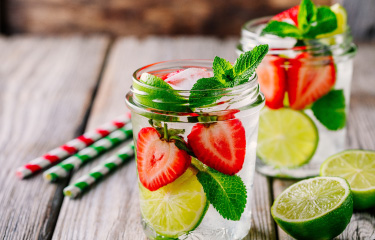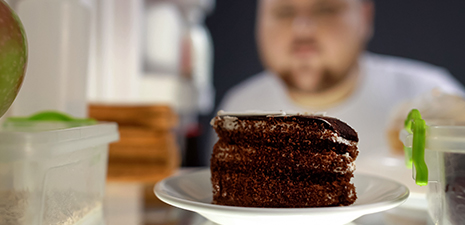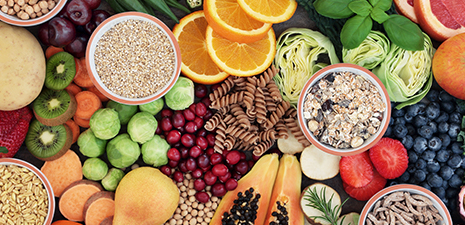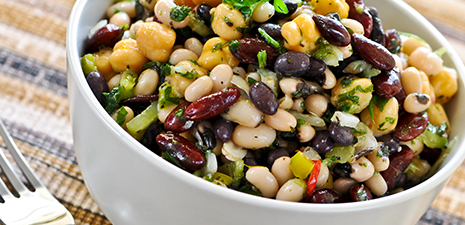What’s the difference between true hunger and fleeting cravings? Learn the science behind food cravings, and how to break free from them, with Nurse Barb Dehn.

Struggling to Drink Enough Water? Try Infused Water Instead!
You’ve heard it countless times: Drink more water! But what if you hate drinking water? Or your weight loss program requires more water than you think you can drink? That’s where infused water comes in. Infused water can help you get enough fluids daily, and these simple infused water flavor combinations are the perfect place to start.
Why You Need to Get Your Water Game On
As you know, water is vital to life itself.1 The human body is about 60% water.2 Water is necessary for essentially every single bodily function, such as:3
- bringing nutrients and oxygen to your cells through the bloodstream,
- dissolving nutrients so that your body can absorb them,
- maintaining an adequate balance of fluids inside your body,
- keeping your joints lubricated,
- keeping your skin healthy,
- regulating your body temperature,
- helping your kidneys eliminate waste,
- and many other functions.
How Much Water Do You Need?
The Centers for Disease Control and Prevention (CDC) don’t endorse a recommendation for how much plain water adults (or kids) should drink daily.4 Each person’s individual combination of weight, activity, and medical conditions factor into such a decision, making it difficult to offer a one-size-fits-all recommendation.
Researchers at Harvard, however, suggest a simple approach: Most healthy people should generally aim for four to six cups of water per day.5
And water is found in food as well. The Mayo Clinic reports the optimal fluid intake of about 15.5 cups (3.7 liters) for men and about 11.5 cups (2.7 liters) a day for women.6 Here, ‘fluid’ refers to all intake of water, beverages, and food throughout the day. Drinks constitute about 80% of fluids, while food makes up the rest.
It’s important to drink water every day, but eating foods with high water content have benefits too. They help keep your body hydrated while also allowing you to feel fuller, thus helping you control your calorie intake.
Foods with high water content include:1
- cantaloupe
- strawberries
- watermelon
- lettuce
- cabbage
- celery
- spinach
Tip: Are you getting enough water? If you feel thirsty or your urine is darkly colored, the answer is likely no.
What Is Infused Water?
As a dietitian, my favorite recommendation for clients who struggle to drink enough water is trying infused water. Infused water is simply water with added fruits, vegetables, and/or herbs that add flavor. Unlike juices and sugary drinks, infused water is naturally low in calories and sugar. This makes it perfect for improving your water intake. If flavoring your water helps you drink more of it, well, all the better for your health!
How to Make Infused Water in 3 Steps
Infused water is not only a tasty, low sugar alternative to drinking plain water, but it’s easy to prepare.
- Gather the ingredients.
- Mix in a container with water.
- Let stand for at least 1 hour.
The longer your infused water stands, the more its flavors develop. Just make sure not to leave the ingredients in your water for more than a day or they’ll start to disintegrate. And if you’re using citrus fruits, remove the rind so it won’t make the water taste bitter.
Portable infusion water bottles are very useful since you can grab them and go, plus they include a compartment to keep all the ingredients in. If you want to make larger quantities, you’ll find infusion water pitchers just as handy.
Benefits of Drinking Infused Water
The real health benefits come from being properly hydrated. In fact, the amount of nutrients in infused water is very small compared to those obtained by eating the actual fruits, veggies, or herbs themselves.
The goal of infused water is helping you drink more water overall. Drinking enough water can help you:
- Maintain a stable weight: Drinking enough water helps mitigate feelings of hunger. Also, some people confuse hunger with thirst sensations.7 Staying well hydrated helps reduce feeling hungry when you’re actually thirsty. There’s also research that found drinking enough water may help raise the metabolic rate a bit.8
- Reduce added sugar intake: Water has no calories, so replacing sugary drinks or soda lowers overall sugar and caloric intake.
- Feel energetic: Even mild dehydration can lead to feeling tired, lethargic, and symptoms such as headache and muscle cramps.9 Drinking enough water (plain or infused) can help you prevent these symptoms while keeping you alert and refreshed.
Examples of Infused Water Flavor Combinations
Here are some delicious and refreshing infused water combinations you can prepare in only a few minutes. Just mix, let the flavors develop and enjoy.
- kiwi and strawberries
- cucumber, lemon, ginger
- strawberry, lemon, basil
- orange, grapefruit, and mint
- strawberry and thyme
- apple, cranberries, and cinnamon
- cucumber, strawberry, lemon
- melon, cucumber, mint
- raspberries, blueberries, lemon
In short, if you need some motivation in order to drink more H2O, why not give infused water a try? You’ll be reaching for that cool, refreshing glass in no time!
Rx Only. For the safe and proper use of Plenity or more information, talk to a healthcare professional, read the Patient Instructions for Use.
- Popkin BM, D’Anci KE, Rosenberg IH. Water, Hydration and Health. US National Library of Medicine, National Institutes of Health. Nutr Rev. 2010 Aug; 68(8): 439–458. doi:10.1111/j.1753-4887.2010.00304.x
- The Water in You: Water and the Human Body. USGS.gov, Water Science School. https://www.usgs.gov/special-topic/water-science-school/science/water-you-water-and-human-body
- Water: Essential to your body. Mayo Clinic Health System. 2020. https://www.mayoclinichealthsystem.org/hometown-health/speaking-of-health/water-essential-to-your-body
- Get the Facts: Drinking Water and Intake. Centers for Disease Control. 2016. https://www.cdc.gov/nutrition/data-statistics/plain-water-the-healthier-choice.html
- How much water should you drink? Harvard Health Publishing. 2020. https://www.health.harvard.edu/staying-healthy/how-much-water-should-you-drink
- Water: How much should you drink every day? Mayo Clinic Health System. 2017. https://www.mayoclinic.org/healthy-lifestyle/nutrition-and-healthy-eating/in-depth/water/art-20044256#:~:text=The%20National%20Academies%20of%20Sciences,fluids%20a%20day%20for%20women
- Mattes RD. Hunger and thirst: issues in measurement and prediction of eating and drinking. Physiol Behav. 2010;100(1):22–32. doi:10.1016/j.physbeh.2009.12.026 https://pubmed.ncbi.nlm.nih.gov/20060847/
- Boschmann M, Steiniger J, Franke G, Birkenfeld AL, Luft F, Jordan J. The Journal of Clinical Endocrinology & Metabolism, Volume 92, Issue 8, 1 August 2007, Pages 3334–3337, https://doi.org/10.1210/jc.2006-1438
- Dehydration. Familydoctor.org American Academy of Family Physicians, July 2017 https://familydoctor.org/dehydration/





